129 years ago today, The Importance of Being Earnest, a play by Irish writer Oscar Wilde, debuted in the St. James Theater of London. It is a farcical comedy in which the protagonists use the age-old theater mechanism of disguises and alter egos to maintain fictitious personae as means to escape burdensome, Victorian social obligations. Some contemporary reviews praised the play’s humor as the culmination of Wilde’s artistic career, but it also brought about his downfall as a playwright. READ what the local royalty thought… (1895)
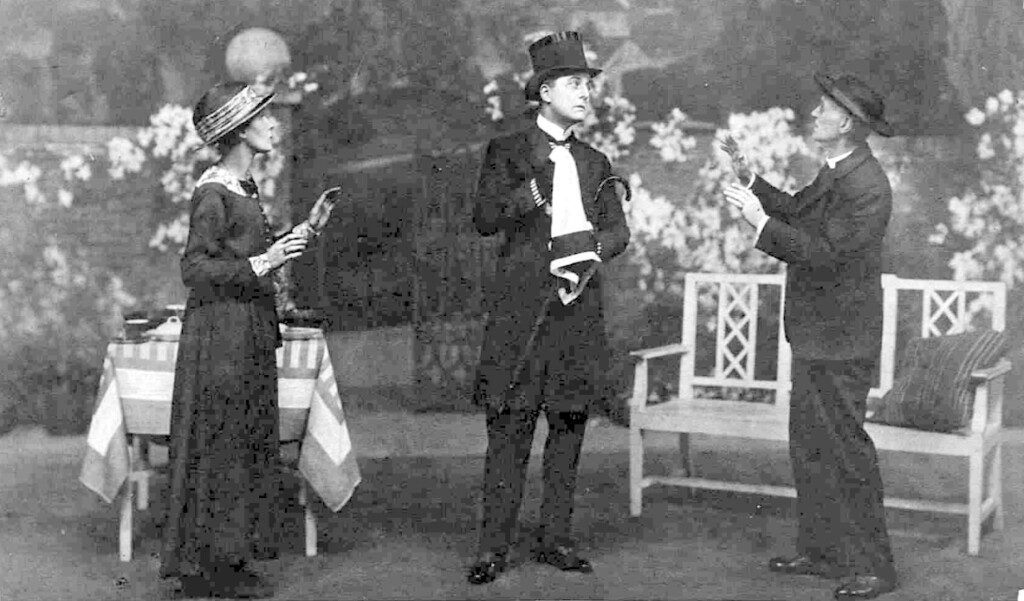
The successful opening night marked the climax of Wilde’s career but also heralded his downfall. The Marquess of Queensberry, whose son Lord Alfred Douglas was Wilde’s homosexual lover, planned to present the writer with a bouquet of rotten vegetables and disrupt the show. Wilde was tipped off, and Queensberry was refused admission.
Their feud came to a climax in court when Wilde sued for libel, but, during the proceedings, evidence came to light of his homosexuality, and he was convicted on charges of ‘gross indecency.’ Wilde’s homosexuality was revealed to the Victorian public, and he was sentenced to two years imprisonment with hard labor. Despite the play’s early success, Wilde’s notoriety caused the play to be closed after 86 performances.
Nevertheless, the play has been an enduring favorite in theater troupes around the globe. It has been adapted into three feature-length films, three operas, and at least 8 musicals (one in Japan featuring an all-female cast).
MORE Good News on this Date:
- After U.S. First Lady Jacqueline Kennedy spent a year restoring the White House with historical furnishings that were missing when she arrived, 80 million people tuned in on television to watch her give a tour featuring her restorations—and the changes became wildly popular (1962)
- Aretha Franklin recorded the award-winning version of Otis Redding’s, Respect, the iconic hit that was rated by Rolling Stone magazine as #5 on their 500 Greatest Songs of All Time (1967)
- The Who performed at Leeds University in England and the resulting recording, Live At Leeds, has been cited as the most important live rock album of all time—and the school’s dining hall was commemorated with a plaque as a UK national landmark. (1970)
- CNN reporter Jeremy Levin was freed from captivity in Lebanon (1985)
- The first of 24 satellites of the Global Positioning System (GPS) were placed into orbit (1989)
- The spacecraft NEAR Shoemaker entered orbit around asteroid 433 Eros, the first spacecraft to orbit an asteroid (2000)
- YouTube was launched by three former PayPal employees as a video-sharing website; it soon became the second-largest search engine in the world, and the main source of viral videos on the Web (2005)
34 years ago, the Voyager 1 spacecraft turned around and took a picture of Earth as it journeyed outside the solar system, which produced the iconic “Pale Blue Dot” image. Having finished its mission, the probe was commanded by NASA to turn its camera around and take one last photograph of Earth across a great expanse of space, at the request of astronomer and author Carl Sagan. The phrase “Pale Blue Dot” was coined by Sagan in his reflections on the photograph’s significance, documented in his 1994 book of the same name. Our home is that small pinhole midway up the rightmost band of light in the image. (1990)
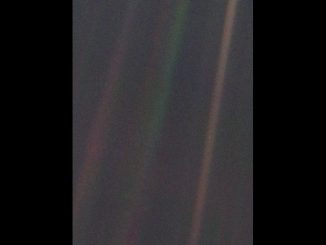
Voyager 1 was almost 4 billion miles from the Earth when it took the photograph, having completed observations of Jupiter and Saturn, and many of their moons with stunning images, that included Saturn’s rings, a volcano eruption on the moon of Loki, lava flows on Io, weather on Jupiter, and the cold stillness of Saturn’s moons. It was after this that Voyager took the photo of Earth, before continuing, as it does to this day, to drift out into interstellar space where it still is sending data back to the Earth, despite being 14 billion miles away.
“Look again at that dot,” Sagan, the founder of the Planetary Society, began in his book. “That’s here. That’s home. That’s us. On it everyone you love, everyone you know, everyone you ever heard of, every human being who ever was, lived out their lives.”
“It has been said that astronomy is a humbling and character-building experience. There is perhaps no better demonstration of the folly of human conceits than this distant image of our tiny world. To me, it underscores our responsibility to deal more kindly with one another, and to preserve and cherish the pale blue dot, the only home we’ve ever known.” LISTEN to Sagan’s inspiring words about the picture…
And, 206 years ago day, Frederick Douglass, the former slave who became an abolitionist author, dazzling orator, and statesman, was born. 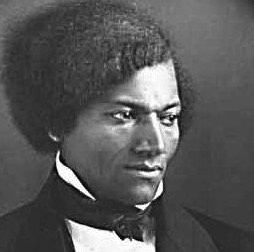
Born in Maryland sometime around this date in 1818 (which is the one he chose to celebrate as his birthday), Douglass grew to stand as a living counter-example to slaveholders’ arguments that slaves lacked the intellectual capacity to function as independent American citizens. He was an adviser to President Abraham Lincoln on issues like African-Americans in the military, and detailed his remarkable life in the 1845 autobiography, Narrative of the Life of Frederick Douglass, an American Slave. WATCH a mini-bio… (1818)
104 years ago today, the League of Women Voters was founded as a nonpartisan organization to advocate for U.S. voters, ensure inclusive access to polls, activate the electorate through voter registration drives, and educate the public through sponsoring debates.
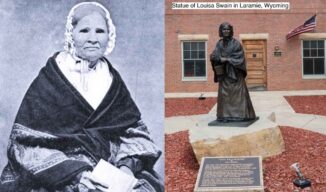
Women didn’t have representation in the U.S. government a century ago, but the League was founded in Chicago, six months before the 19th amendment was ratified and women won the vote. They set out to help 20 million women carry out their new responsibilities as voters.
In the 70s and 80s, the League regularly sponsored presidential debates, which focused on nonpartisan issues that would inform voters. As candidates increasingly demanded partisan conditions, however, the League withdrew its sponsorship of national debates in 1988. But the League’s 1000 offices around the country still organize many debates or forums for local and state elections today.
In 1993, the group’s campaign for national legislation to reform voter registration resulted in the passage of the National Voter Registration Act. Known as the “motor-voter” bill, it enabled citizens to register at motor vehicle agencies automatically, as well as by mail.
After the 2000 election exposed the many problems (like ‘hanging chads’) facing the election system, the League began to work on reforms. Working closely with a civil rights coalition, LWV helped draft and pass the Help America Vote Act (HAVA), which established provisional balloting, requirements for updating voting systems, and the Election Assistance Commission. Join a group or learn more at their website, LWV.org. (1920)
77 years ago today, Phạm Tuân was born in Viet Nam. He became the first Vietnamese citizen and the first person from an East Asian country to fly in space when he launched aboard the Soyuz 37 mission as an Interkosmos Research Cosmonaut. He was awarded the title Hero of the Soviet Union. Furthermore, he is the only military aviator in history to shoot down an American B-52 Stratofortress in combat—in 1972 during Nixon and Kissenger’s “Christmas Bombings.” READ more about this pioneering cosmonaut… (1947)

On 1 April 1979, he was selected as a member of the sixth international crew for the Interkosmos program. During his time in orbit, Tuân performed experiments on the melting of mineral samples in microgravity. He also carried out plant experiments on azolla, and photographed Viet Nam from orbit for mapping purposes. Tuân was in space for 7 days, 20 hours, and 42 minutes, completing 142 orbits, and returned to Earth on 31 July 1980.
Tuân brought several things with him on the Soyuz 37 flight. These included pictures of former President Hồ Chí Minh, General Secretary Lê Duân, Hồ Chí Minh’s will, and Vietnamese flags. He wanted to stamp all of these as if he were at the post office, at the space station, and bring it back to Earth.
93 years ago today, the horror film Dracula starring Bela Lugosi was released. Adapted from the 1897 novel by Bram Stoker, it’s a tale of Count Dracula, a vampire who emigrates from Transylvania to England and preys upon the blood of living victims.
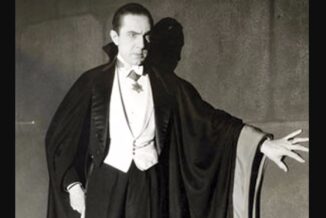
Directed and co-produced by Tod Browning, Dracula was a commercial and critical success upon release, and led to endless sequels and knock-offs. Lugosi’s performance solidified the character as a cultural icon—the archetypal vampire, and “one of the most unique and powerful roles of the screen,” said one film critic. WATCH his reaction to being shown a crucifix… (1931)
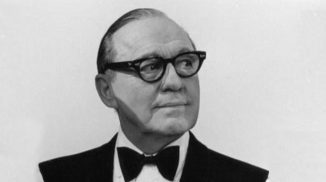
And, on this day in 1894, comedian Jack Benny was born in Chicago. A leading 20th-century entertainer of stage and screen, Benny portrayed himself as stingy and vain, and played his violin tenderly and sometimes badly. He was known for his comic timing and the ability to cause laughter with a silent pause or a single expression—like his signature move, an exasperated “Well!” His popular radio and TV programs from 1932 until his death in 1974 were a major influence on the sitcom genre.
Mary Livingstone, his wife and radio partner, played a wisecracking secretary who made fun of Benny in their act and proved to be a talented comedian. WATCH a video tribute…
SHARE The Milestones, Memories, and Music…




















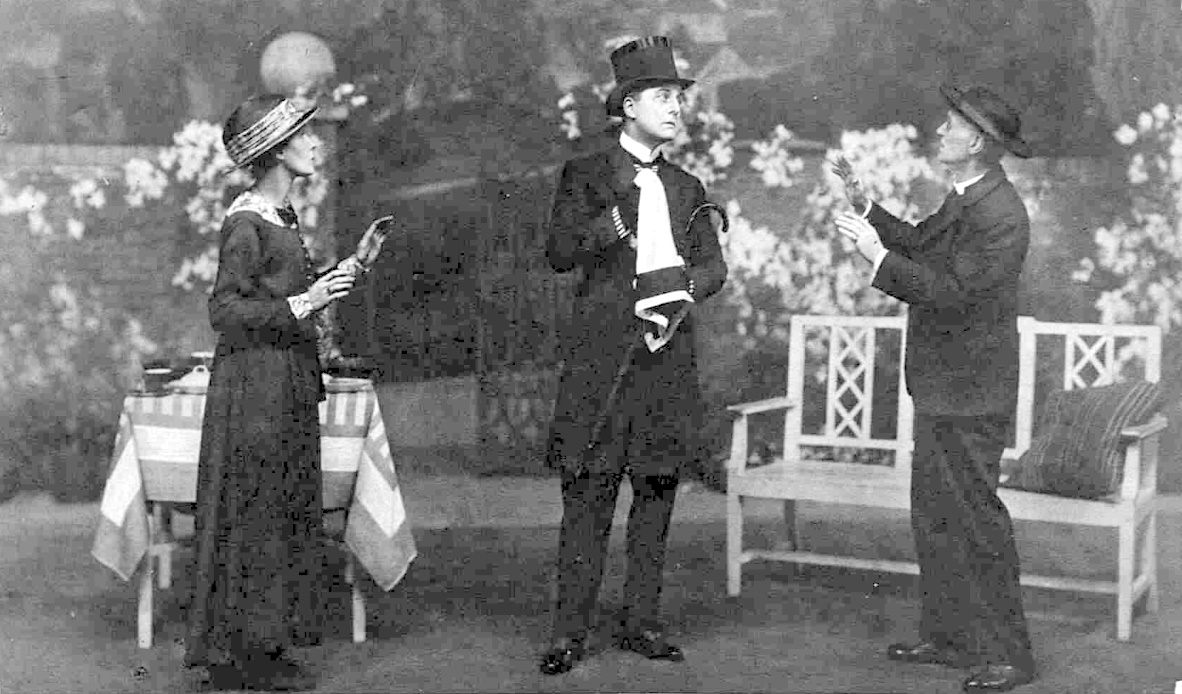
[…] post Good News in History, February 14 appeared first on The Good News […]
[…] Posted From: https://www.goodnewsnetwork.org/events070214/ […]
[…] Read the full story at https://www.goodnewsnetwork.org […]
[…] post Good News in History, February 14 appeared first on Good News […]